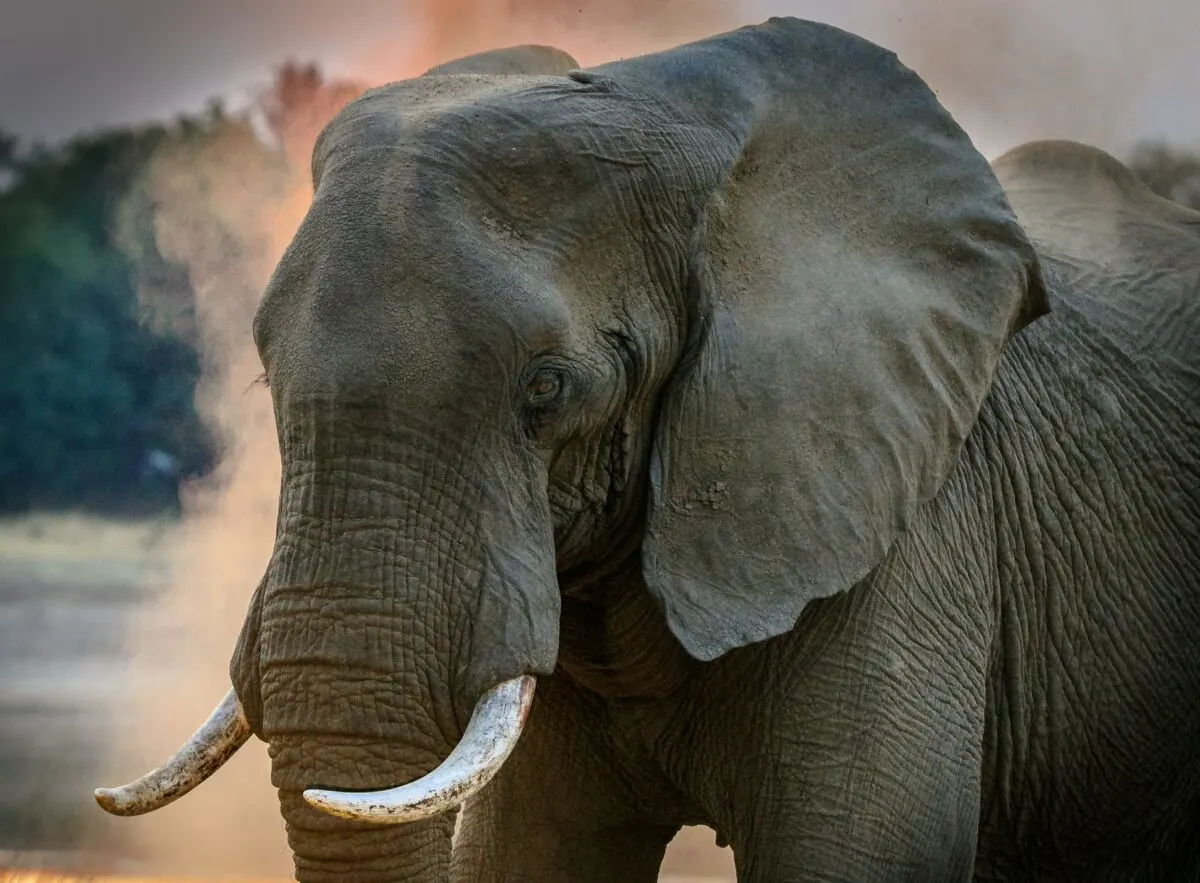Distinguished by their exceptional physical and behavioral attributes, African elephants and wild horses are magnificent animals recognized for their resilience, intellect, and power. Whereas elephants are indigenous to Africa and some parts of Asia, wild horses inhabit various regions across the globe, such as Europe, North America, and Asia.
We’ll contrast African elephants and wild horses to understand their similarities and differences better and help you appreciate these magnificent creatures and their essential roles in our ecosystem.
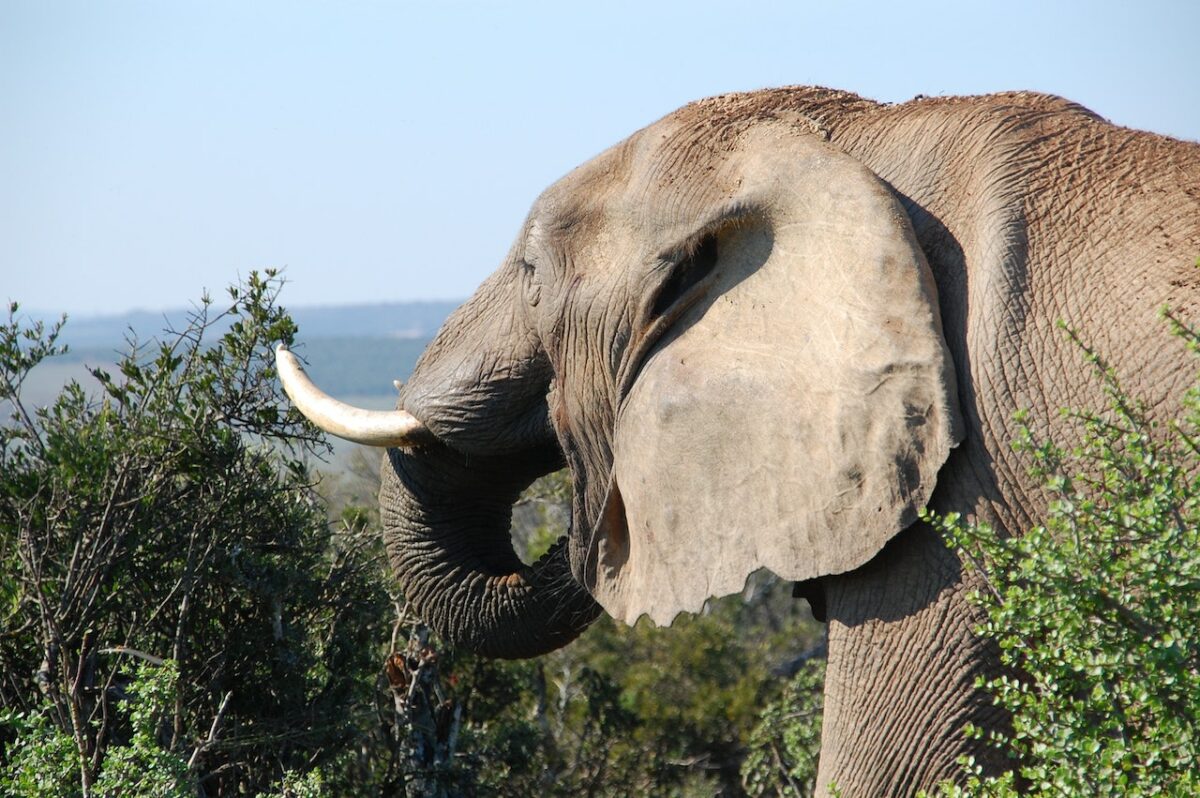
Want to jump ahead? Click below
Comparison Table
| African ElephantWild Horse | ||
|---|---|---|
| Size | In small bands led by the dominant stallion, male horses may fight for the right to mate. | 800-2,000 lbs |
| Coat & Color | Gray, sparse hair on the tail and ears | Short coat, various colors |
| Habitat | Savannas, forests, and deserts in Africa and Asia | North America and similar locations |
| Diet | Bark, leaves, twigs, up to 300 lbs/day | Grasses, vegetation |
| Social Behavior | While male elephants live alone or in small bachelor groups, female elephants lead family units as matriarchs. | Female horses talented at 2-3 yrs, gestation 11 mos |
| Reproduction | Female elephants capable at 12-15 yrs, gestation 22 mos | Female horses capable at 2-3 yrs, gestation 11 mos |
This comparison table highlights the main differences and similarities between African elephants and wild horses, making it easy to see how they differ in various categories such as size, coat, habitat, diet, and social behavior.
Understanding these two animals can thus help us appreciate their unique qualities and importance to the environment, which is also why we’re delving into them in more detail in the following section.
Differences and Similarities

- Physical Characteristics
Size and Weight
These Elephants, specifically, can generally reach up to the upper end of 13 ft, weighing somewhere between 5000 and 14000 lbs.
Male elephants, known as bulls, are usually larger than females or cows. In contrast, wild horses are much more miniature, weighing between 800 and 2,000 pounds and standing 4 to 6 feet at the shoulder. Male horses, known as stallions, are usually taller and heavier than females or mares.
Coat and Color
African elephants have gray, thick skin with sparse hair on their tails and ears. Their sizable ears regulate their body temperature as elephants flap them to cool themselves down. Wild horses have short, smooth coats in various colors, including black, white, brown, and gray.
- Habitat and Distribution
Natural Habitat
Indigenous to Africa’s savannas, forests, and deserts, African elephants inhabit 37 countries across the continent.
They prefer areas with a water source and plenty of vegetation. Wild horses, on the other hand, are found in different regions like North America, Europe, and Asia. They inhabit grasslands, meadows, and deserts.
Range
African elephants have a large range, which includes sub-Saharan Africa, with some populations found in parts of Asia. These elephants can also be divided into two further subspecies: the Forest Elephant and the Bush Elephant.
Conversely, wild horses have a restricted distribution as they were initially confined to North America but were subsequently transported to other areas by humans.
- Diet and Behavior
Diet
African elephants and wild horses are herbivores, meaning they feed on plants. With a unique digestive system, African elephants can consume fibrous plant materials like bark, leaves, and twigs. They have a voracious appetite and can devour up to 300 lbs of food daily.
Wild horses, on the other hand, have a simpler digestive system and feed mainly on grasses and other vegetation.
Social Behavior and Reproduction
African elephants exhibit intricate social behavior, residing in family groups overseen by a dominant female or matriarch. Of course, these group’s members are general adult females and their progeny. Males tend to live solitary bachelor lives or in groups with other adult males.
Female elephants attain sexual maturity around 12 years of age, and they carry their offspring for 22 months, the longest gestation period among any land animal.
In contrast, wild horses typically live in small bands led by a dominant stallion. While the females – like with the elephants – live in social structures with their children, males prefer to engage in physical competitions.
These competitions are constructed to gain mating rights with females since female horses can reproduce at around 2-3 years old, and their gestation period is 11 months.
Training African Elephants and Wild Horses
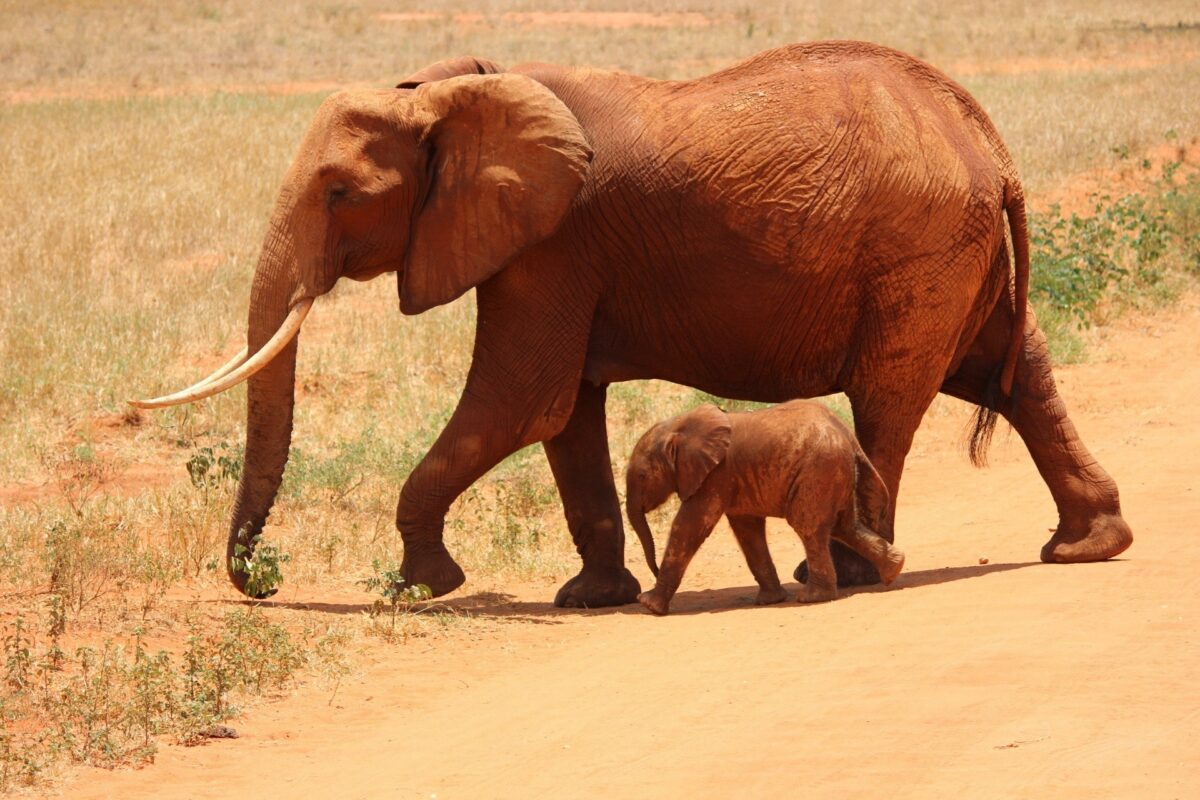
African Elephant Training
Training elephants is a specialized and complex process that requires a deep understanding of their behavior, communication, and physiology.
While traditional training methods have been criticized for their cruelty, more humane methods, such as positive reinforcement training, have been developed to ensure elephants are trained safely and ethically. Positive reinforcement training involves rewarding desired behaviors with treats or praise and effectively training elephants.
Wild Horse Training
Horse training methods vary depending on the intended use of the animal and the trainer’s preferences, but they generally involve building trust and communication between the horse and the trainer.
Common training methods include natural horsemanship, classical dressage, and clicker training. These methods focus on developing a partnership with the horse through clear communication and mutual respect.
Why Train These Animals?
Training is essential for African elephants and wild horses to ensure their safety and well-being in captivity or domestication. Proper training can help prevent injuries to both the animal and their human handlers and improve their physical and mental health when considering where they may be, whether in the zoo or for riding.
Training also enables elephants and horses to perform various tasks, such as carrying riders or transporting heavy objects, which can benefit both work and entertainment.
Check out more information on training these two animals here.
Interesting Facts
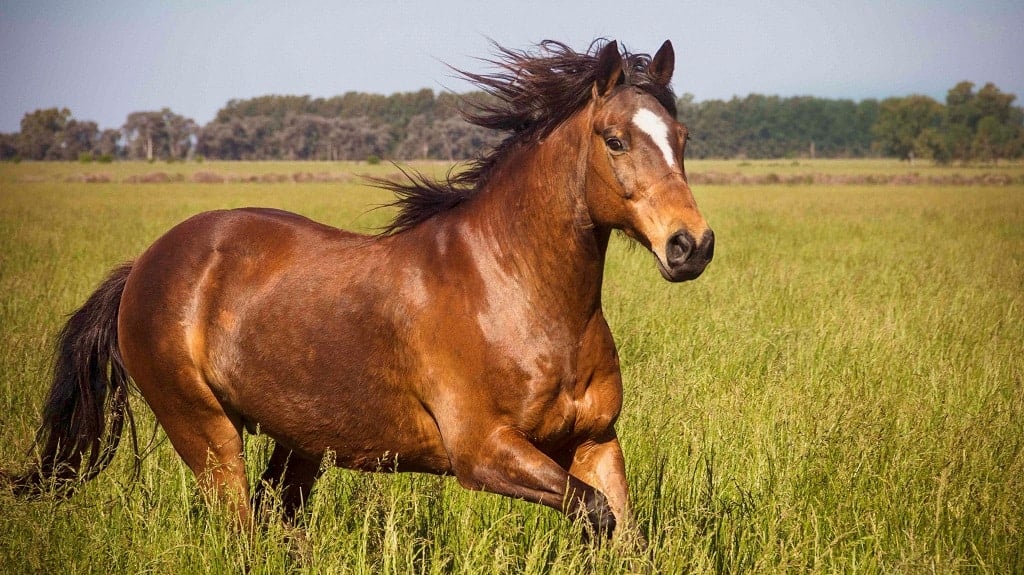
Both African elephants and wild horses have many interesting facts and trivia associated with them:
African Elephant Facts
- African Elephants have huge trunks, and they can use them as an extra limb – they’re utilized for collecting food, greeting other elephants, and even for drinking water!
- Elephants have a complex social structure, with family groups led by matriarchs.
- Elephants have excellent memories and can recognize individual humans even years after an encounter.
- Researchers have informed us that elephants are even capable of emotions! Empathy is one of their strong points, and they have been recorded showing sympathy and concern for other elephants, especially when they’re miserable.
Wild Horse Facts
- Wild horses are not wild but rather feral horses descended from domesticated horses.
- These land animals are pretty well known for their speed – as horses, they can average up to 55 miles in an hour!
- Horses have excellent vision and can see almost 360 degrees around them.
- Their preferred mode of communication includes vocalizations and body language – both of which are highly utilized due to these animals being social in nature.
Learn more about African elephants and wild horses as well!
Key Points
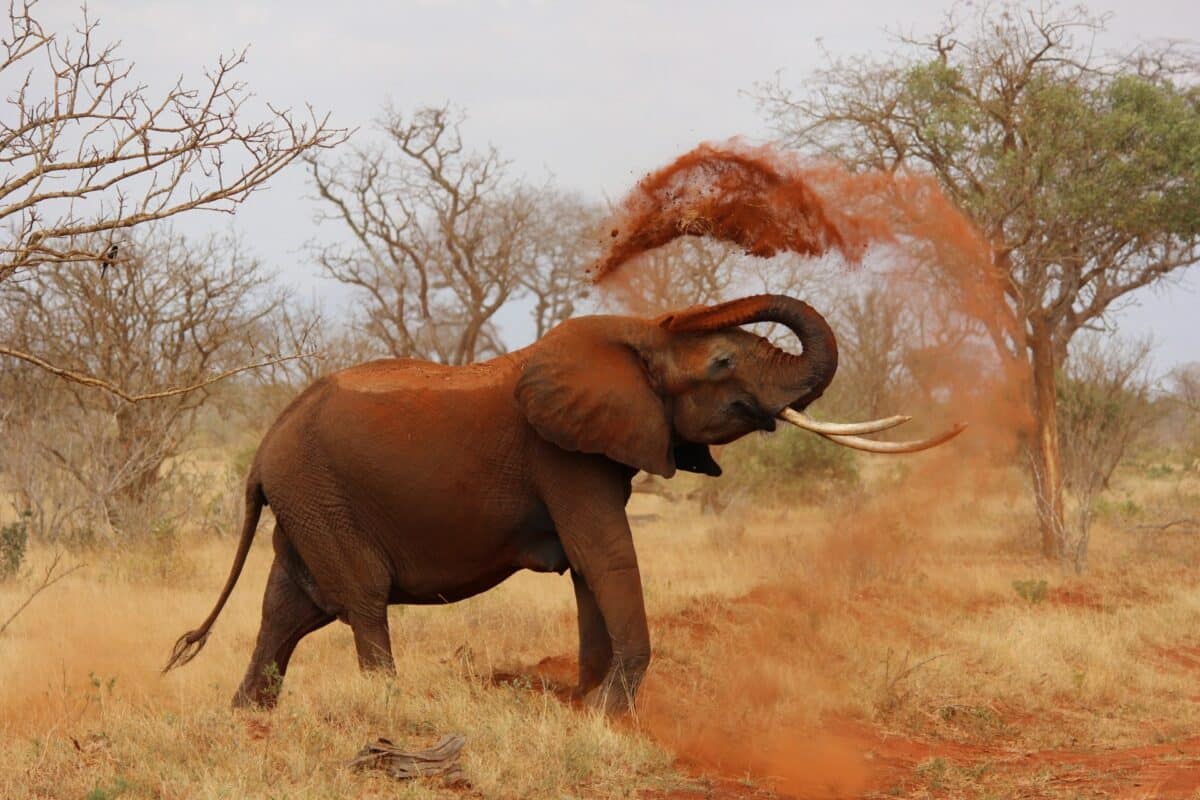
| African elephants are the largest land animals on earth and have unique physical and behavioral traits. |
| Wild horses are agile and athletic animals that are known for their speed and endurance. |
| Both elephants and horses have been domesticated and trained for various purposes throughout history. |
| Proper training is essential for the safety and well-being of both animals. |
| Wild horses are agile and athletic animals known for their speed and endurance. |
| Learning about the unique traits of both animals can help us better understand and appreciate these magnificent creatures. |
Wrapping Up with African Elephants vs. Wild Horse
African elephants and wild horses are very different animals with unique physical and behavioral traits. Still, even though they are different, both animals have a long history of domestication and training.
Wild Horses have since been domesticated into farm horses and such, while elephants have also been trained to listen to human commands, especially for things like the circus.
Whether you’re a fan of the majestic African elephant or the spirited wild horse, both animals are fascinating and deserving of our admiration and respect. Learning about their unique traits can help us better understand and appreciate these magnificent creatures that share our world.
Thanks for following along with me! I hope you enjoyed reading about these two exciting animals. Next are Gorilla vs. Elk, Gorilla vs. Crocodile, and Gorilla vs. Coyote.
Join our Forum for free today!

- Kind Elephant Merciful To Lion Cubs - July 22, 2024
- Beachgoers Save Massive Shark Stranded In Florida - July 22, 2024
- Pit Bull Rescued From Being Chained Its Whole Life Gets A Surprise - July 21, 2024

